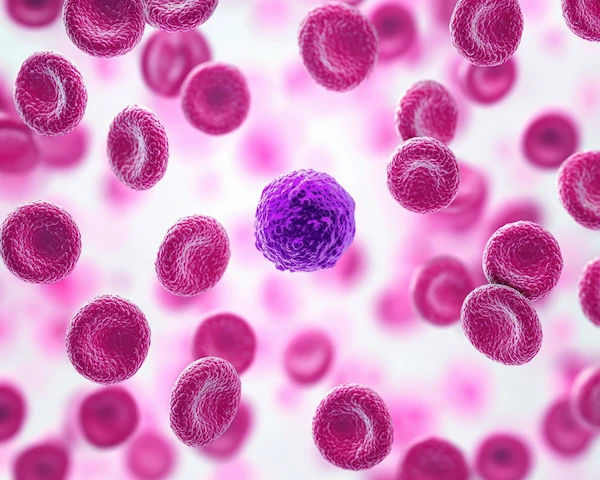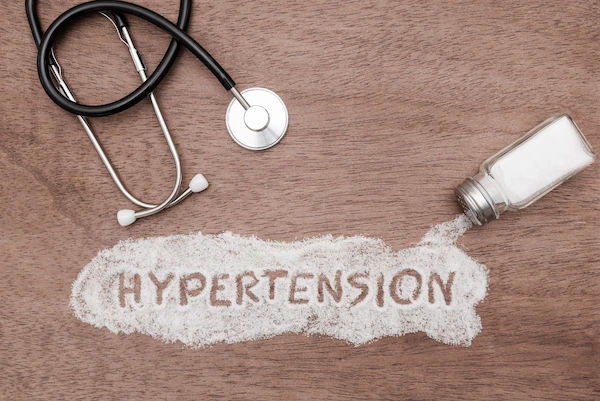Hemoglobin Levels and Their Health Implications
Explore what hemoglobin levels reveal about your health, the normal ranges for different age groups, and how abnormal levels can indicate conditions like anemia or other blood disorders.


Hemoglobin is a vital protein in your red blood cells that carries oxygen from your lungs to the rest of your body and brings carbon dioxide back to the lungs for exhalation. Maintaining healthy hemoglobin levels is crucial for overall well-being. If your hemoglobin is too high or too low, it can lead to various health concerns.
In this article, we’ll explore what hemoglobin levels mean, how they affect your health, and what you can do to keep them balanced.
What Are Normal Hemoglobin Levels?
Hemoglobin levels vary depending on age, sex, and overall health. Generally, the normal ranges are:
- Men: 13.8 to 17.2 grams per deciliter (g/dL)
- Women: 12.1 to 15.1 g/dL
- Children: Varies by age (consult a pediatrician)
- Pregnant women: Slightly lower due to increased blood volume
If your hemoglobin is outside these ranges, it may indicate an underlying health issue.
Consult a Top Specialist
Low Hemoglobin Levels (Anemia)
Below are the various aspects of low hemoglobin levels,
Symptoms of Low Hemoglobin
- Fatigue and weakness
- Pale or yellowish skin
- Shortness of breath
- Dizziness or lightheadedness
- Cold hands and feet
- Irregular heartbeat
Common Causes of Low Hemoglobin
- Iron Deficiency – The most common cause, often due to poor diet or blood loss (e.g., heavy periods, ulcers).
- Vitamin Deficiencies – Lack of vitamin B12 or folate affects red blood cell production.
- Chronic Diseases – Conditions like kidney disease or cancer can reduce hemoglobin.
- Pregnancy – Increased blood volume can dilute hemoglobin levels.
- Bone Marrow Disorders – Conditions like leukemia disrupt blood cell production.
How to Improve Low Hemoglobin
- Eat iron-rich foods: Spinach, lentils, red meat, beans, and fortified cereals.
- Increase vitamin C intake: Helps with iron absorption (oranges, tomatoes, bell peppers).
- Take supplements (if prescribed): Iron, B12, or folate supplements may be needed.
- Manage underlying conditions: Treat infections, chronic diseases, or blood loss.
If symptoms persist, consult a doctor for further tests like a Complete Blood Count (CBC) or iron studies.
High Hemoglobin Levels (Polycythemia)
Below are the various aspects of high hemoglobin levels,
Symptoms of High Hemoglobin
- Headaches and dizziness
- Blurred vision
- Itchy skin (especially after a warm shower)
- Fatigue despite high oxygen levels
- Reddish or purplish skin tone
Common Causes of High Hemoglobin
- Dehydration – Less fluid in blood makes hemoglobin appear high.
- Smoking – Reduces oxygen intake, forcing the body to produce more red blood cells.
- Lung or Heart Disease – Conditions like COPD or heart failure can increase hemoglobin.
- Living at High Altitudes – Lower oxygen levels trigger more red blood cell production.
- Bone Marrow Disorders – Polycythemia vera (a rare blood cancer) causes excess hemoglobin.
How to Manage High Hemoglobin
- Stay hydrated – Drink plenty of water to prevent false high readings.
- Quit smoking – Improves oxygen levels and circulation.
- Exercise moderately – Helps regulate blood oxygen levels.
- Phlebotomy (if needed): A doctor may remove blood to reduce thickness.
If you experience persistent symptoms, consult a doctor for further evaluation.
When to See a Doctor?
You should seek medical advice if:
- You feel constantly tired, dizzy, or short of breath.
- Your skin looks unusually pale or reddish.
- You have unexplained weight loss or frequent infections.
- You notice swelling in the abdomen or legs.
A simple blood test (CBC) can check your hemoglobin levels. If needed, your doctor may recommend further tests like iron studies, kidney function tests, or bone marrow biopsy.
Get Your Health Assessed
Final Tips for Healthy Hemoglobin Levels
Below are a few tips for healthy hemoglobin levels,
- Eat a balanced diet – Include iron, vitamin B12, and folate-rich foods.
- Stay hydrated – Helps maintain normal blood viscosity.
- Exercise regularly – Improves circulation and oxygen use.
- Avoid smoking and excessive alcohol – Both can disrupt hemoglobin balance.
- Monitor chronic conditions – Manage diabetes, kidney disease, or heart issues with your doctor.
Need Help? Book a Test or Consultation Today!
If you're concerned about your hemoglobin levels, Apollo 24|7 offers easy blood tests and expert consultations. You can:
- Book a CBC test to check your hemoglobin.
- Consult a hematologist for personalized advice.
Final Thoughts
Maintaining healthy hemoglobin levels is essential for ensuring that your body receives adequate oxygen to function properly. Both low and high hemoglobin levels can signal underlying health issues that require medical attention. Regular blood tests, a balanced diet rich in iron, and timely medical interventions can help manage and maintain optimal hemoglobin levels, supporting overall well-being and vitality.
Consult a Top Specialist
Consult a Top Specialist

Dr. Mohammed Kamran
General Practitioner
5 Years • MBBS, FIDM
Nashik
Apollo 24|7 Clinic - Maharashtra, Nashik

Dr. Chaithra H
General Physician/ Internal Medicine Specialist
6 Years • MBBS, MD General Medicine, DNB General Medicine
Bangalore
Apollo 24|7 Clinic - Karnataka, Bangalore

Dr. M L Ezhilarasan
General Practitioner
6 Years • MBBS
Visakhapatnam
Apollo 24|7 Clinic - Andhra Pradesh, Visakhapatnam

Dr. Jawwad Mohammed Kaleem
General Practitioner
4 Years • MBBS
Hyderabad
Apollo 24|7 Clinic, Hyderabad

Dr. Siri Nallapu
General Practitioner
5 Years • MBBS
Hyderabad
Apollo 24|7 Clinic, Hyderabad
Consult a Top Specialist

Dr. Mohammed Kamran
General Practitioner
5 Years • MBBS, FIDM
Nashik
Apollo 24|7 Clinic - Maharashtra, Nashik

Dr. Chaithra H
General Physician/ Internal Medicine Specialist
6 Years • MBBS, MD General Medicine, DNB General Medicine
Bangalore
Apollo 24|7 Clinic - Karnataka, Bangalore

Dr. M L Ezhilarasan
General Practitioner
6 Years • MBBS
Visakhapatnam
Apollo 24|7 Clinic - Andhra Pradesh, Visakhapatnam

Dr. Jawwad Mohammed Kaleem
General Practitioner
4 Years • MBBS
Hyderabad
Apollo 24|7 Clinic, Hyderabad

Dr. Siri Nallapu
General Practitioner
5 Years • MBBS
Hyderabad
Apollo 24|7 Clinic, Hyderabad


.webp)


